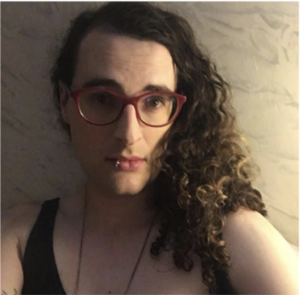
“Instead, a queer politics would have hope, not even by having hope in the future (under the sentimental sign of the “not yet”), but because the lines that accumulate through the repetition of gestures, the lines that gather on skin, already take surprising forms. We have hope because what is behind us is also what allows other ways of gathering in time and space, of making lines that do not reproduce what we follow but instead create wrinkles in the earth.”
—Sara Ahmed, Queer Phenomenology
Methodology & FAQ:
Why read this ‘academic theory’ text?
It’s a promethean endeavor. As Fred Moten and Stephano Harney contend in The Undercommons, the only ethical relationship to the university possible today is one of THEFT. Queer Phenomenology was produced in the academy, but in reading it outside of the academy, my hope is that we will re-common its conversations. In this groups, I seek to make a space for thought both outside of and other to academic spaces.
Yes, yes, but why Queer Phenomenology specifically?
Oh, right! Well I have a longstanding interest in phenomenology that dates back to when I first dipped into Maurice Merleau-Ponty’s Phenomenology of Perception. It was difficult reading at the time, but I remember feeling that it was like neuroscience from the inside out. That, on the mobius strip, one side of which is mind and the other of which is matter (both ultimately the same), phenomenology was attempting to explore the world starting from how we perceive it. As a poet this makes intuitive sense. I’m not the only one to connect phenomenology to poetry. Gaston Bachelard, in The Poetics of Space, explored the ways that literature, and especially poetry, can help us understand how we perceive and relate to spaces (in this book, his emphasis is on the intimate interior space of the house).
I’m excited to read Queer Phenomenology because it is not only a work of phenomenology, but a work of feminist queer antiracist theory (and I’m queer as heck, for what it’s worth, and aspire to be an antiracist feminist). Ahmed complicates the canonical phenomenology by reintroducing the domestic labor that undergirded the work of early white male phenomenologists. Starting from the philosopher’s desk, she proceeds to discuss also how we orient towards each other, and what it means to orient queerly. She riffs on the orient of orientation to introduce a critique of the colonial instrumentalization of the “Orient” to
produce “Occidental” thought, and critiques the habit space of whiteness from a mixed orientation (this will make more sense when we read!).
What’s the point of reading and thinking deep thoughts while we descend ever deeper into political and ecological chaos?
I believe that dreaming and contemplating in common are the ground for a deeper and more nuanced understanding of existence and that this more nuanced understanding is the ground for meaningful action in the world.
Weekly on Zoom, Saturdays 12-2 PM EST, Starting October 24
 About the Facilitator: Zoe Tuck was born in Texas, became a person in California, and now lives in Massachusetts, where she is building the Threshold Academy, a future bookstore and non-traditional educational / performance space. She co-curates the But Also house reading series. Zoe is the author of Soft Investigations (Daisy Mayhem Books 2019) and Terror Matrix (Timeless, Infinite Light 2014). She is currently blogging about books, writing a trans feminine epic poem, and chipping away at an autobiographical novel. Find out more at zoetuck.com.
About the Facilitator: Zoe Tuck was born in Texas, became a person in California, and now lives in Massachusetts, where she is building the Threshold Academy, a future bookstore and non-traditional educational / performance space. She co-curates the But Also house reading series. Zoe is the author of Soft Investigations (Daisy Mayhem Books 2019) and Terror Matrix (Timeless, Infinite Light 2014). She is currently blogging about books, writing a trans feminine epic poem, and chipping away at an autobiographical novel. Find out more at zoetuck.com.
ALL ACCESS PRICING MODEL / PAY WHAT YOU CAN / COMPARISON COSTS:
Liminal Lab is committed to providing a source of income for our collaborators and facilitators in an increasingly precarious time for culture workers and educators. However, no one will ever be turned away for lack of funds. We ask that those who can pay the suggested price, and/or help cover the cost of scholarship slots in each of our programs by sponsoring other participants.
- Compare the below to the cost for a similar accredited workshop in a university setting (where most of the $$$ goes to institutional bloat): $1035 — we show you this so we can begin to think about wtf is happening in our institutions, where both students and faculty get the short end of the stick.
- At a standard “Market Rate,” at arts orgs: $350*
- Recommended Sliding Scale: $30-50/session → $180-300 for the series
- Precarity Pricing: $10-20/session
- Barter / Volunteer / No Cost Option Available
- Sponsorship: You may sponsor low or no fee participants in this workshop with a donation of any size.*if you have the funds to afford the “Market Rate,” we encourage you to support this facilitator by donating at that level, which will also support other students in this course who are unable to pay.
Did you know? You can click here to become a member, or
to make a donation to support low and no cost participation in our programs for others!


